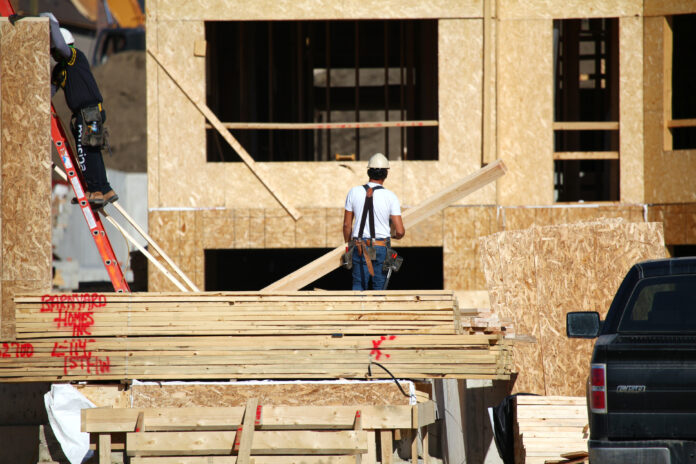By Richard Lyall
RESCON
The adage, “Go West, young man,” made famous in the mid-1800s by journalist Horace Greeley, founding editor of The New York Tribune, seems to sum up the situation in Canada these days.
There appears to be a brain drain of young adults ages 25 to 44 heading to the Prairies, namely Alberta, according to latest interprovincial migration figures. Provinces such as Ontario are losing talent.
There was also a minor gain of 299 workers in New Brunswick, but it is considered statistically insignificant and is rounded to zero.
The reason for the exodus from provinces such as Ontario?
Direct correlation
It appears there is a direct correlation between the cost of housing and the number of young people picking up stakes. In other words, lack of affordable and suitable accommodation is causing the shift.
These young adults are at peak productivity. They buy homes and cars, raise families, open businesses and contribute to the economy. Fewer workers mean reduced economic development.
The flip side of the coin, of course, is that many of these young people who are leaving are the future trades workforce. Down the road, provinces such as Ontario may therefore be short of talent.
According to latest statistics, 8,094 young people left Ontario in 2024 while Alberta gained 18,413. Ontario, which used to lead net gains for workers, has held the title of biggest loser for four consecutive years. For Alberta, it marked the third consecutive year of accelerating growth.
In order of losses, Manitoba was second, losing 3,122 people, Quebec was third losing 2,163 people and B.C. was fourth, losing 1,772.
With housing starts in many provinces falling faster than a category-five hurricane barometer, urgent action is needed.
Alberta a leading example
As it happens, Alberta is the only province that has and is implementing serious housing strategies such as fewer regulations and lower taxes on housing that are getting construction under way faster.
The province focused on selling young adults on housing affordability and attracting workers, especially in construction, by offering a $5,000 moving bonus to eligible trades. To get young adults to stay in provinces such as Ontario, we must build housing that’s affordable for working people.
Alberta led the nation in housing starts last year, with 46,632 new homes under construction, breaking historic records. In March of this year, Alberta had 3,958 starts, up 27 per cent from March 2024. Ontario, meanwhile, had 2,962 starts in March this year, down 46 per cent from March 2024.
In Toronto, where the average home price is $1.07 million, an individual or family would need an income of $217,000 to buy a home, according to the Canadian Real Estate Association. In Calgary, where the average home price is $583,400, an income of $125,250 is needed.
In the runup to the recent federal election, party leaders of all political stripes put forward plans to boost housing. The housing policies proposed by the federal Liberals must now be converted into action. The recently re-elected Ford government in Ontario also must make moves.
Analysis paralysis
Hope is not a plan and piecemeal change won’t work. We don’t need further analysis paralysis and endless echo chambers. We need action on housing, and we need it to happen now.
A poll conducted last year indicated that 45 per cent of Canadians don’t believe they’ll ever be able to afford a home, regardless of interest rate cuts. Data like this shows the urgency of the situation.
To tackle the crisis, we must cut red tape, slash sales taxes, levies and development charges on new housing, unlock more land and speed up the development approvals and permitting systems.
If prefabricated supply chains and methods are to be part of the mix, governments must talk to real builders before taking action, and not just the pseudo-builder consultants and designers.
You cannot build a G7-leading economy when the ratio of housing costs to incomes has moved from a historical average of 3:1 to the current 9:1.
Considering the present situation, and the self-gelding exercise south of the border due to uncertainty over tariffs, it is time for serious action on the housing front.
I remain eternally optimistic that we can turn the situation around. But we need to get started yesterday.
Richard Lyall is president of the Residential Construction Council of Ontario (RESCON). He has represented the building industry in Ontario since 1991. Contact him at media@rescon.com.












